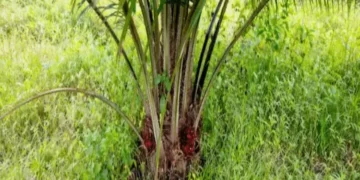In the months since the novel coronavirus rose from a regional crisis to a global threat, drug makers and scientists around the world both large and small have scrambled to advance their best ideas in order to twart the crisis the world finds itself in.
Some are taking a cue from older antivirals. Some are tapping tried-and-true technologies, and others are pressing forward with futuristic approaches to human medicine as the race for vaccine development continues.
The confirmed cases of Covid-19 in Nigeria continue to rise, with 790 new cases added to the tally on Wednesday by the NCDC. Total of 26,484 cases have been confirmed in the country with, 10,152 recoveries and 603 deaths recorded. Recovery rate and death rate are 38.33% and 2.27%.
Although several cases and deaths remain unrecorded due to insufficient number of testing in Nigeria.
In Africa, 414,011 cases have been confirmed with 10,260 deaths and 195,729 recoveries according to Africa Centre for Disease Control and Prevention. Recovery rate and death rate in Africa are 47.28% and 2.48% respectively.
Globally, 10,716,063 people have been infected, with largest number of cases confirmed in the U.S. The country has recorded 2,686,587 cases according to John Hopkins Coronavirus Resource Centre.
516,726 people have lost their lives to the virus, whereas 5,499,628 persons have recovered globally. With the death rate at 4.82% and recovery rate at 51.32%.
- Have you read?
- How much the world invested in renewable energy in 2019
- National Assembly suspends 774,000 recruitment exercise for Nigerians
Hope for Vaccine
A potential COVID-19 vaccine being developed by Pfizer and BioNTech which spurred immune responses in healthy patients, was reported on Wednesday.
The study of the vaccine was conducted between 04 May 2020 and 19 June 2020, in the United States, in which 45 participants were randomized and vaccinated.
The study population consisted of healthy male and nonpregnant female participants with a mean age of 35.4 years (range 19 to 54 years); 51.1% were male and 48.9% were female. Most participants were white (82.2%) and non-Hispanic/non-Latino (93.3%).
Twelve participants received 10 μg dose, another 12 received 30 μg, and another 12 received 100 μg dose. Nine participants received placebo.
Nine of the participants were vaccinated with BNT162b1 on Days 1 and 21 and 12 participants received a 100 μg dose on Day 1.
Following a second injection after three weeks of the other doses, some side effects including fever and sleep disturbances were reported by the participants.
None of these side effects was deemed serious, meaning they did not result in hospitalization or disability and were not life-threatening.
The researchers said that “Follow-up will continue for all participants and will include collection of serious adverse events for 6 months.”
The Pfizer/BioNTech vaccine, like the Moderna vaccine, is based on a technology called messenger RNA, which uses a key genetic messenger found in cells to create protein that the immune system then learns to attack.
The vaccine generated antibodies against SARS-CoV-2, the virus that causes Covid-19, and some of these antibodies were found to be neutralizing, that is they seem to prevent the virus from functioning.
Levels of neutralizing antibodies were between 1.8 to 2.8 times the level of that in the recovered patients according to the report.
“These clinical findings for the BNT162b1 RNA-based vaccine candidate are encouraging and strongly support accelerated clinical development and at-risk manufacturing to maximize the opportunity for the rapid production of a SARS-CoV-2 vaccine to prevent COVID-19 disease” the report stated.
Later phases of this study will prioritize enrollment of more diverse populations, including those with chronic underlying health conditions and from racial/ethnic groups adversely affected by COVID-19.19
BioNTech is the Sponsor of the study while Pfizer was responsible for the design, data collection, data analysis, data interpretation, and writing of the report.
Phil Dormitzer, a vaccine developer at Pfizer, spoke to ABC News about the new data from the company’s vaccine, which he called “tremendously exciting,
Dormitzer assured that Pfizer is “currently on track” to meet the goal of producing 100 million doses by the end of the year and another 1.2 billion doses in 2021.”
“The goal that we’ve set is to distribute millions of vaccine doses in 2020 and executing on that, of course, means everything has to go well,” he said. “We need the regulatory approval to do so. But that is our plan.”
Several vaccines are currently under development across the world with 17 under clinical evaluation according to the World health organization (WHO).
These include vaccines being developed by University of Oxford/AstraZeneca at phase 3 trial, Moderna/NIAID at phase 2, CanSino Biological Inc./Beijing Institute of Biotechnology at phase 2, BioNTech/Fosun Pharma/Pfizer at phase 1/2, Wuhan Institute of Biological Products/Sinopharm at phase 1/2 and Sinovac at phase 1/2 among other developers.
Others developers in phase 1 trial include Clover Biopharmaceuticals Inc./GSK/Dynavax, Institute of Medical Biology , Chinese Academy of Medical Sciences, Inovio Pharmaceuticals.
132 candidate vaccines in preclinical evaluation according to WHO, developers include National Research Centre Egypt, University of Waterloo, Beijing Minhai Biotechnology Co., Ltd., Adeleke Univerty Nigeria, Research Institute for Biological Safety Problems, Rep of Kazakhstan, Codagenix/Serum Institute of India, Massachusetts Eye and Ear/Massachusetts General Hospital/AveXis, Vaxart, Centro Nacional Biotecnología (CNB-CSIC), Spain among others.
Written by;
Ifunanya Ikueze
























































